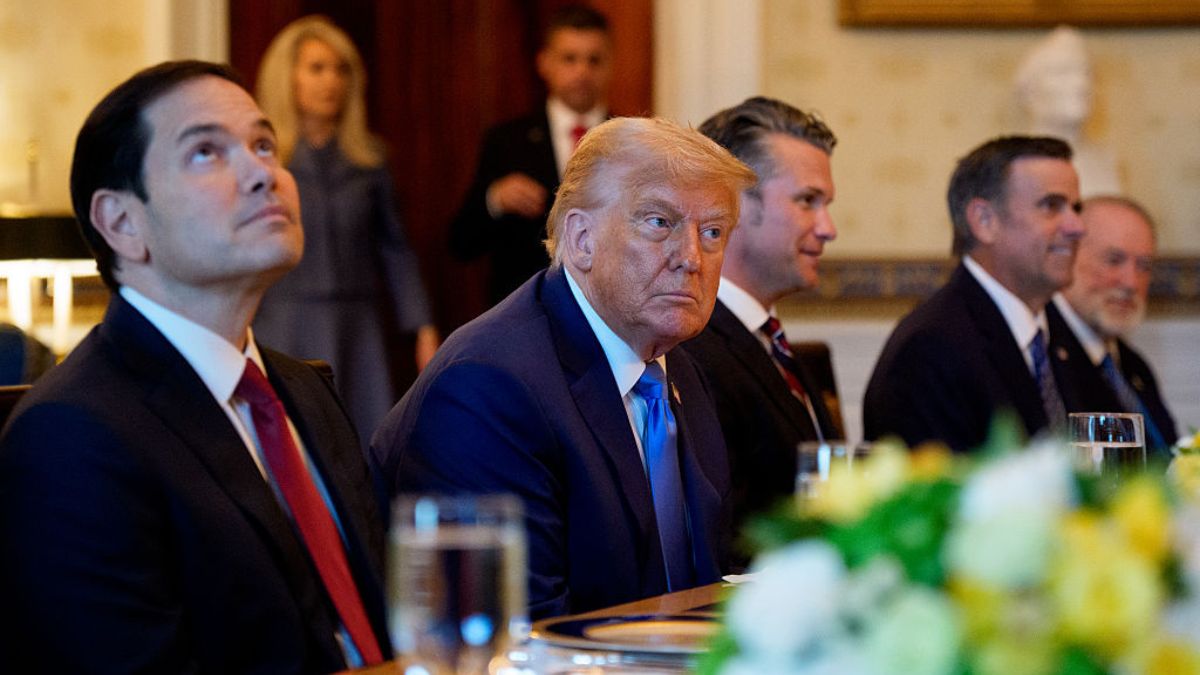
President Donald Trump has launched new trade attacks against 14 countries, including close allies Japan and South Korea. On Monday, the White House threatened to put tariffs of 25 percent to 40 percent on imports from these nations unless they fix what Trump sees as unfair trade deals. The move has caused anger among America’s closest partners around the world.
According to The Washington Post, Japanese Prime Minister Shigeru Ishiba called the tariff threats “deeply regrettable.” His party colleague, Itsunori Onodera, was even more upset, saying Trump’s decision “to notify a key ally with nothing more than a single letter is extremely disrespectful, and I feel a strong sense of indignation.” The tensions were so high that Trump then doubled down by referring to Trudeau as ‘Governor Trudeau’, insisting Canada “needs U.S. protection.” Secretary of State Marco Rubio dropped planned stops in Tokyo and Seoul during his Asia trip this week.
The harsh treatment of allies has many asking tough questions about America’s role in the world. “Many in Asia are going to ask, ‘Is this how the U.S. treats its friends?'” said Manu Bhaskaran, who runs a research firm called Centennial Asia Advisors, a concern echoed by experts who argue that Trump’s isolationist posture severs America’s long‑held ally ties.
BRICS nations push back against Trump’s threats
Trump also went after the BRICS group of countries over the weekend. He threatened 100 percent tariffs on all 10 members of the bloc, which includes Russia, China, Iran, India, and Brazil. Trump said the punishment would come if BRICS countries tried to create a new currency to replace the U.S. dollar in global trade.
Brazilian President Luiz Inácio Lula da Silva, who was hosting a BRICS meeting in Rio de Janeiro, fought back against Trump’s threats. “The world has changed. We don’t want an emperor,” Lula said. He added that BRICS countries want “to find another way of organizing the world from the economic perspective.”
Wall Street thinks Trump’s tariff truce means the trade war is over.
— David Woo Unbound (@Davidwoounbound) July 9, 2025
But the clock is ticking: July 9 could bring a market shock.
Stocks are priced for peace.
They’re about to get a reality check.Watch the full breakdown. pic.twitter.com/Y1clhMwWjh
The tough talk from Trump may have the opposite effect from what he wants. Oliver Stuenkel, a professor in São Paulo, said Trump’s attack “was counterproductive.” Instead of making countries leave BRICS, the threats might bring them closer together. Celso Amorim, Lula’s top foreign policy advisor, said Trump’s threats “reinforce the willingness of members and associated partners to chart our path and seek greater independence.”
Public opinion shows growing worry about America
New polling shows that people in allied countries are losing trust in America. A Pew poll released Tuesday found that majorities in Canada and Mexico now see the United States as the “greatest threat” to their country. This marks a big increase from a similar survey in 2019. In other countries, more than a third of South Africans, 40 percent of Indonesians, 30 percent of Turks, and almost a fifth of people in Japan also named America as their biggest threat.
Even European leaders are talking about reducing their dependence on America. French President Emmanuel Macron warned during a visit to Britain that Europe relies too much on both the United States and China. “If we want to build a sustainable future for all children, we have to de-risk our economies and our societies from these dual dependencies,” he said.
Trade experts worry that Trump’s approach could hurt America’s long-term interests. Wendy Cutler, a former U.S. trade negotiator, said it’s hard to understand why Trump would hit Japan and South Korea with high tariffs when these countries invest heavily in America and cooperate on important issues like semiconductors and energy. The damage to relationships with allies could be permanent, as one expert noted: “Credibility and trust are much more easily destroyed than built.”







